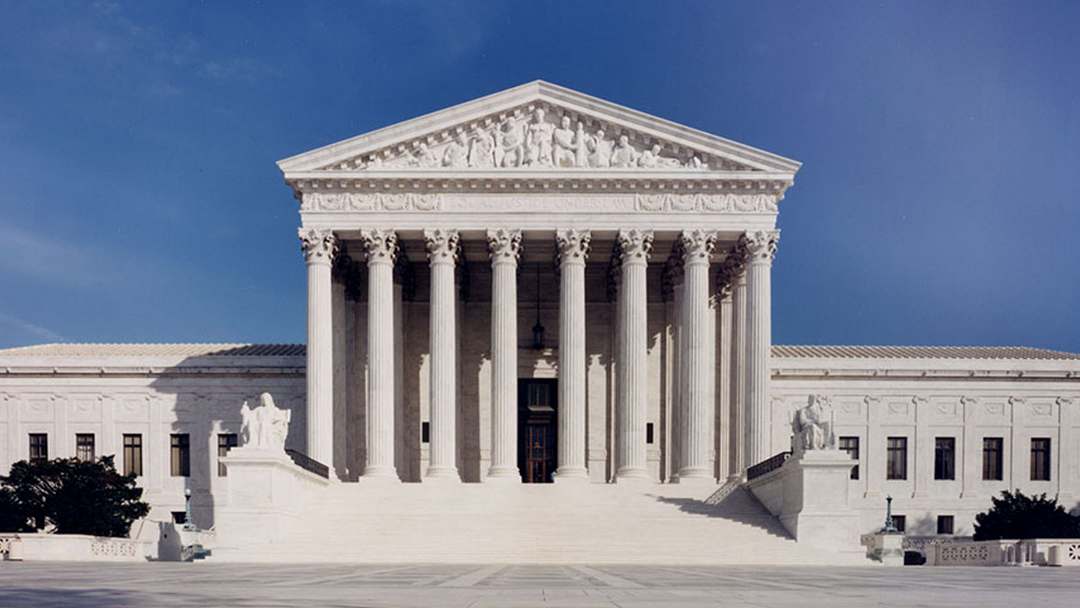No Results Found
The page you requested could not be found. Try refining your search, or use the navigation above to locate the post.

Navigating the legal system can be daunting, especially when it comes to understanding the rules governing evidence.
This article sheds light on the first six articles of the Michigan Rules of Evidence (MRE), providing a helpful summary for legal professionals, litigants, and anyone interested in gaining insights into how evidence is handled in Michigan courts.
Rule 101: Scope and Definitions
Firstly, MRE 101 establishes the scope of the rules, specifying that they apply to all proceedings in Michigan courts, with exceptions outlined in Rule 1101. It also clarifies key terms like “civil case” and “record,” ensuring consistent interpretation throughout.
Rule 102: Purpose
MRE 102 sets the guiding principle for interpreting the rules: fairness, efficiency, and truth-seeking. It emphasizes administering proceedings justly, minimizing unnecessary cost and delays, and ultimately, ensuring accurate outcomes.
Rule 103: Rulings on Evidence
This rule outlines how to preserve objections and offer proof. To challenge a ruling admitting evidence, a party must object promptly, state the specific reason, and offer a motion to strike. In case of exclusion, the party must inform the court of the evidence’s content through an offer of proof, unless already clear from the context.
Rule 104: Preliminary Questions
MRE 104 addresses situations where the judge must decide a preliminary question, such as witness competency or hearsay exceptions, before determining whether evidence is admissible. The rule allows both parties to present evidence on the preliminary issue, ensuring a fair and informed decision by the judge.
Rule 105: Limiting Admissibility
This rule acknowledges that some evidence, though relevant, might be prejudicial or confusing. MRE 105 empowers the judge to limit the admissibility of such evidence in various ways, like allowing only specific portions, instructing the jury, or imposing an “admonition” to disregard certain aspects. This ensures a balanced presentation of evidence that focuses on the relevant issues.
Rule 106: Remainder of or Related Writings
Finally, MRE 106 addresses situations where a party introduces part of a writing or recording. This rule grants the opposing party the right to introduce any other portion or related document that provides context and fairness. This prevents distortion and ensures the jury hears the complete picture.
Conclusion
These six initial rules of the MRE lay the foundation for a fair and efficient legal system in Michigan. By understanding their purpose and application, individuals can navigate the courtroom with greater confidence and contribute effectively to the pursuit of justice.
Important:
This article provides a simplified overview of MRE 101-106 for informational purposes only. It should not be interpreted as legal advice. When facing legal matters, always consult with a qualified attorney for professional guidance. It is suggested that you read the unsummarized rule. Here is the link to the Michigan Rules of Evidence Handbook
Have your rights been violated?
Have your driving priviledges been revoked?
Has your professional license been suspended?
Have you been charged with a crime?
Call our office to see if we can help
Komorn Law 248-357-2550
Related Articles
The page you requested could not be found. Try refining your search, or use the navigation above to locate the post.
The page you requested could not be found. Try refining your search, or use the navigation above to locate the post.

The Petitions of the Week column highlights a selection of cert petitions recently filed in the Supreme Court. A list of all petitions we’re watching is available here.
Organized crime, from the mafia to small-time money laundering schemes, often evades criminal prosecution. To bolster efforts to fight organized crime, Congress passed the Racketeer Influenced and Corrupt Organizations Act, known as RICO, more than 50 years ago.
In addition to the criminal penalties for violating RICO, the law also authorizes private individuals to bring civil lawsuits for an injury to their “business or property” as a result of the defendant’s “racketeering activity,” which the law defines broadly to include a wide range of criminal offenses.
This week, we highlight petitions that ask the court to consider, among other things, whether someone can sue under RICO to recover lost earnings.
Marketed as “a revolution in medicinal hemp-powered wellness,” Dixie X is a CBD supplement that claims to offer a variety of health benefits. After learning about Dixie X in a magazine, Douglas Horn began using the supplement in 2012 to soothe pain and inflammation from a car accident. Although the ad claimed that the supplement does not contain any THC (the active ingredient in marijuana),
RESTORE YOUR SECOND AMENDMENT RIGHTS
RESTORE YOUR PROFESSIONAL LICENSE
RESTORE YOUR DRIVER LICENSE
RESTORE YOUR PAST (Expungements)
Call our Office for a free case evaluation
Komorn Law (248) 357-2550
Professional License Restoration / Rights Restoration / Record Expungments / Driver License Restoration
Satisfied, Horn began using Dixie X. Shortly after, he failed a random drug test at work and was fired. Suspecting the supplement, Horn sent a batch to an independent lab, which found that the product contained THC.
Horn went to federal court in New York, arguing that the company that sold Dixie X, Medical Marijuana, Inc. – which, despite its name, deals only in hemp-based CBD products – was responsible for his termination. Part of his lawsuit alleged violations of state law, including a claim that he was fraudulently induced to purchase the supplement while unaware of its risks. But Horn also argued that the company injured his “business or property” under RICO by conspiring to commit federal mail and wire fraud that resulted in the loss of his salary.
In Medical Marijuana, Inc. v. Horn, the maker of Dixie X asks the justices to grant review and reverse the 2nd Circuit’s ruling. The company argues that economic harm stemming from a personal injury has no business, so to speak, under RICO. “If quintessential personal injuries count as injuries to ‘business or property’ just because economic damage inevitably results,” the company writes, “Congress’ careful limitation on civil RICO claims would be toothless.”
Read the Rest here at ScotusBlog

Komorn Law – Federal Courts and All Michigan Courts
Yim v. City of Seattle, Washington
23-329
Issue: Whether Seattle’s restriction on private owners’ right to exclude potentially dangerous tenants from their property violates the 14th Amendment’s due process clause.
Amer v. New Jersey
23-351
Issues: (1) Whether a defendant is always “unable to stand trial” under Article VI(a) of the Interstate Agreement on Detainers while a pretrial motion is pending; and (2) whether a defendant has been “brought to trial” within 180 days of his request for final disposition of charges under Article III(a) of the agreement at the point when jury selection begins.
Medical Marijuana, Inc. v. Horn
23-365
Issue: Whether economic harms resulting from personal injuries are injuries to “business or property by reason of” the defendant’s acts for purposes of a civil treble-damages action under the Racketeer Influenced and Corrupt Organizations Act.
Bhattacharya v. State Bank of India
23-390
Issue: Whether, to establish a “direct effect in the United States” under 28 U.S.C. § 1605(a)(2), a plaintiff must make an extratextual showing that either the sovereign engaged in a U.S.-based “legally significant act,” or that the U.S. effects were “legally significant” in addition to being direct.
The page you requested could not be found. Try refining your search, or use the navigation above to locate the post.

Examining Michigan’s Act 247 and the Publication of Notices
In today’s rapidly evolving digital landscape, the role of traditional media like newspapers is constantly under scrutiny. Yet, in Michigan, a 1963 law, Act 247, still mandates the publication of certain legal notices in newspapers. This blog delves into the intricacies of Act 247 and its continued relevance in the 21st century.
Act 247: A Legacy of Public Awareness
Enacted in 1963, Act 247 governs the publication of legal notices in newspapers within the state of Michigan. These notices encompass a wide range of official matters, including:
The rationale behind Act 247 is rooted in the principle of public access to information. Newspapers, with their widespread circulation and historical role as community hubs, were seen as the most effective means to ensure that all citizens were aware of important legal proceedings and decisions impacting their lives.
Have you been charged with a crime?
Have your rights been violated?
Have your driving priviledges been revoked?
Has your professional license been suspended?
Call our office to see if we can help
Komorn Law 248-357-2550
The Digital Dilemma: Is Print Still King?
However, the digital revolution has challenged the primacy of newspapers. Online news platforms and social media have emerged as powerful alternatives for disseminating information.
Critics argue that relying on print publications for legal notices is outdated and inefficient, potentially excluding those who don’t regularly read newspapers or have limited internet access.
Furthermore, the cost of publishing legal notices in newspapers can be significant, especially for small businesses and individuals.
This raises concerns about accessibility and affordability, particularly for marginalized communities who do not have the desire to read a newspaper.
Finding a Balance: The Future of Legal Notices
Despite these challenges, Act 247 continues to hold value. Newspapers, with their established legal framework and editorial standards, offer a level of authenticity and accountability that online platforms may not always provide. Additionally, many local newspapers maintain strong ties to their communities, ensuring wider reach than solely online platforms.
Moving forward, the key lies in finding a balance between tradition and innovation. Exploring alternative publication methods, such as online government portals or designated community notice boards, could improve accessibility and reduce costs. However, it’s crucial to ensure these alternatives are equally reliable and reach the intended audiences.
The debate surrounding Act 247 and the publication of legal notices in newspapers reflects a broader conversation about the evolving role of traditional media in a digital age. While embracing new technologies is essential, it’s equally important to recognize the strengths and value of established systems like newspapers. Finding a way to leverage both the reach of the digital world and the reliability of traditional media can ensure that all citizens have access to the information they need to participate actively in their communities.
Here’s the Michigan Law (Link)
691.1051 Newspaper; definition; publication of notices; duties of newspaper operator.
Sec. 1.
The page you requested could not be found. Try refining your search, or use the navigation above to locate the post.

Michigan cherishes the Second Amendment, but it’s important to remember that this right isn’t absolute. Certain actions or circumstances can lead to its temporary or permanent loss. Understanding these situations and potential avenues for restoration is crucial for responsible gun ownership.
This post provides a general overview and isn’t a substitute for legal advice.
If you face gun rights restriction or seek restoration, consulting with a qualified attorney familiar with Michigan gun laws is highly recommended.
By understanding the potential limitations and restoration processes, responsible gun owners in Michigan can safeguard their Second Amendment rights and exercise them safely and lawfully.
Driver License
Gun License
Professional License
Record Expungement
Call Our Office for a Free Case Evaluation
The page you requested could not be found. Try refining your search, or use the navigation above to locate the post.

A bill enacted into California law in 2024 prohibits employers from discriminating against individuals based on their off-duty and off-site use of cannabis, as it relates to their employment.
The bill provides an extra level of safeguard for marijuana users in California, but does it suggest a full prohibition on employers conducting marijuana tests in the state?
The new law, Assembly Bill 2188, clearly states that employers cannot terminate employees based on the presence of cannabis in their hair, blood, or urine. Furthermore, it is now against the law for employers to inquire about an applicant’s consumption of cannabis or marijuana.
This means that individuals who have previously used marijuana cannot face penalties for their past use. Furthermore, individuals are protected from any penalties for using marijuana outside of the workplace and during non-working hours.
AB 2188 often mentions the “psychoactive” properties of cannabis Defined by the World Health Organization as this -> Definition <.
While the bill provides certain protections, it remains illegal to be under the influence of marijuana or bring it into the workplace.
AB 2188 mandates drug tests that specifically target impairing effects. It is crucial to note that standard marijuana tests do not identify any factors that could negatively impact an employee’s performance.
While it is widely acknowledged that employees should not arrive at a worksite while under the influence or impaired, it is important to note that most cannabis tests only indicate the presence of the nonpsychoactive cannabis metabolite.
These test results do not demonstrate any correlation with job impairment. However, it is crucial to maintain a responsible and safe working environment by prioritizing employee well-being and adhering to workplace policies regarding substance use and impairment.
However, it should be noted that there are additional types of tests that are allowed and these tests do not assess the existence of nonpsychoactive cannabis metabolites.
The purpose of drug tests is to identify potentially impaired employees. These tests include impairment tests that measure an individual employee’s performance against their own baseline, as well as tests that detect the presence of THC in an individual’s bodily fluids, as indicated by the bill.
This law does not apply to employers in the building and construction trades or employees hired for “positions that require a federal government background investigation.”
Additionally, state and federal laws remain that test applicants and employees for controlled substances.
Have your rights been violated?
Have your driving priviledges been revoked?
Has your professional license been suspended?
Have you been charged with a crime?
Call our office to see if we can help
Komorn Law 248-357-2550
Here’s the California Law below and the link here
An act to add Section 12954 to the Government Code, relating to employment.
[ Approved by Governor September 18, 2022. Filed with Secretary of State September 18, 2022. ]
LEGISLATIVE COUNSEL’S DIGEST
AB 2188, Quirk. Discrimination in employment: use of cannabis.
Existing law, the California Fair Employment and Housing Act, protects and safeguards the right and opportunity of all persons to seek, obtain, and hold employment without discrimination, abridgment, or harassment on account of race, religious creed, color, national origin, ancestry, physical disability, mental disability, medical condition, genetic information, marital status, sex, gender, gender identity, gender expression, age, sexual orientation, or military and veteran status. The act prohibits various forms of employment discrimination and empowers the Civil Rights Department to investigate and prosecute complaints alleging unlawful practices.
This bill, on and after January 1, 2024, would also make it unlawful for an employer to discriminate against a person in hiring, termination, or any term or condition of employment, or otherwise penalize a person, if the discrimination is based upon the person’s use of cannabis off the job and away from the workplace, except for preemployment drug screening, as specified, or upon an employer-required drug screening test that has found the person to have nonpsychoactive cannabis metabolites in their hair, blood, urine, or other bodily fluids. The bill would exempt certain applicants and employees from the bill’s provisions, including employees in the building and construction trades and applicants and employees in positions requiring a federal background investigation or clearance, as specified. The bill would specify that the bill does not preempt state or federal laws requiring applicants or employees to be tested for controlled substances as a condition of employment, receiving federal funding or federal licensing-related benefits, or entering into a federal contract.
DIGEST KEY
Vote: majority Appropriation: no Fiscal Committee: yes Local Program: no
BILL TEXT
THE “PEOPLE” OF THE STATE OF CALIFORNIA DO ENACT AS FOLLOWS:
SECTION 1.
The Legislature finds and declares both of the following:
(a) Tetrahydrocannabinol (THC) is the chemical compound in cannabis that can indicate impairment and cause psychoactive effects. After tetrahydrocannabinol is metabolized, it is stored in the body as a nonpsychoactive cannabis metabolite. These metabolites do not indicate impairment, only that an individual has consumed cannabis in the last few weeks.
(b) The intent of drug tests is to identify employees who may be impaired. While there is consensus that an employee should not arrive at a worksite high or impaired, when most tests are conducted for cannabis, the results only show the presence of the nonpsychoactive cannabis metabolite and have no correlation to impairment on the job.
(c) As science has improved, employers now have access to multiple types of tests that do not rely on the presence of nonpsychoactive cannabis metabolites. These alternative tests include impairment tests, which measure an individual employee against their own baseline performance and tests that identify the presence of THC in an individual’s bodily fluids.
SEC. 2. Section 12954 is added to the Government Code, to read:
12954. (a) It is unlawful for an employer to discriminate against a person in hiring, termination, or any term or condition of employment, or otherwise penalizing a person, if the discrimination is based upon any of the following:
(1) The person’s use of cannabis off the job and away from the workplace. This paragraph does not prohibit an employer from discriminating in hiring, or any term or condition of employment, or otherwise penalize a person based on scientifically valid preemployment drug screening conducted through methods that do not screen for nonpsychoactive cannabis metabolites.
(2) An employer-required drug screening test that has found the person to have nonpsychoactive cannabis metabolites in their hair, blood, urine, or other bodily fluids.
(b) Nothing in this section permits an employee to possess, to be impaired by, or to use, cannabis on the job, or affects the rights or obligations of an employer to maintain a drug- and alcohol-free workplace, as specified in Section 11362.45 of the Health and Safety Code, or any other rights or obligations of an employer specified by federal law or regulation.
(c) This section does not apply to an employee in the building and construction trades.
(d) This section does not apply to applicants or employees hired for positions that require a federal government background investigation or security clearance in accordance with regulations issued by the United States Department of Defense pursuant to Part 117 of Title 32 of the Code of Federal Regulations, or equivalent regulations applicable to other agencies.
(e) This section does not preempt state or federal laws requiring applicants or employees to be tested for controlled substances, including laws and regulations requiring applicants or employees to be tested, or the manner in which they are tested, as a condition of employment, receiving federal funding or federal licensing-related benefits, or entering into a federal contract.
(f) This section shall become operative on January 1, 2024.
The page you requested could not be found. Try refining your search, or use the navigation above to locate the post.

Michigan’s history with impeachment is relatively short, with the first and only instance occurring in 1975 against Governor William Milliken.
However, the process outlined in the state’s constitution and further detailed in the Michigan Compiled Laws Act 62 of 1872 remains a relevant and important safeguard against misconduct by public officials.
Take a dive into the impeachment rules and laws in Michigan
As per MCL Act 62, impeachment in Michigan can be initiated against any state officer, including the governor, lieutenant governor, secretary of state, attorney general, and justices of the supreme court.
The grounds for impeachment are outlined in the Michigan Constitution, Article IX, Section 7, and encompass a range of offenses, including:
The impeachment process in Michigan is a two-stage procedure:
1. House of Representatives:
The process begins in the House of Representatives, where a majority vote is required to initiate an impeachment inquiry.
If the inquiry finds sufficient evidence of wrongdoing, the House can vote to impeach the official by a two-thirds majority.
Upon impeachment, the official is suspended from office until the Senate trial.
2. Senate Trial:
The Senate then conducts a trial, presided over by the Chief Justice of the Supreme Court.
Both the House and the impeached official are represented by counsel and have the right to present evidence and witnesses.
A two-thirds majority vote in the Senate is required to convict the official and remove them from office.
MCL Act 62 provides further details and procedures related to the impeachment process. It outlines:
The specific steps involved in forming an impeachment inquiry committee in the House.
The rules of evidence and procedure during the Senate trial.
The potential consequences of conviction, including removal from office and disqualification from holding future public office.
6.1 Impeachment of civil officers; power of house, suspension; vacancies.
Sec. 1.
6.2 Impeachment; trial by senate, judgment.
Sec. 2.
6.3 Impeachment; prosecution by house.
Sec. 3.
6.5 Impeachment; appearance and answer of accused.
Sec. 5.
6.6 Impeachment; counsel for accused.
Sec. 6.
6.7 Impeachment; trial, time, place, adjournment.
Sec. 7.
6.8 Impeachment; acquittal.
Sec. 8.
Have your rights been violated?
Have your driving priviledges been revoked?
Has your professional license been suspended?
Have you been charged with a crime?
Call our office to see if we can help
Komorn Law 248-357-2550
6.9 Impeachment; president of senate, notice to senate.
Sec. 9.
6.11 Impeachment; duties of secretary; record of proceedings, oaths.
Sec. 11.
6.12 Impeachment; senate appointment and removal of subordinate officers.
Sec. 12.
6.13 Impeachment; powers of managers, rights of process.
Sec. 13.
6.14 Impeachment; senate rules and regulations.
Sec. 14.
6.15 Impeachment; compensation of members of court, managers, and other officers; payment.
Sec. 15.
6.16 Application of act.
Sec. 16.
Index and Information Source
History: 1872, Act 62, Imd. Eff. Mar. 30, 1872
| Document | Type | Description |
| Section 6.1 | Section | Impeachment of civil officers; power of house, suspension; vacancies. |
| Section 6.2 | Section | Impeachment; trial by senate, judgment. |
| Section 6.3 | Section | Impeachment; prosecution by house. |
| Section 6.4 | Section | Impeachment; organization of senate as court, oaths, attendance of members. |
| Section 6.5 | Section | Impeachment; appearance and answer of accused. |
| Section 6.6 | Section | Impeachment; counsel for accused. |
| Section 6.7 | Section | Impeachment; trial, time, place, adjournment. |
| Section 6.8 | Section | Impeachment; acquittal. |
| Section 6.9 | Section | Impeachment; president of senate, notice to senate. |
| Section 6.10 | Section | Impeachment; writs and process, signing and testing, enforcement. |
| Section 6.11 | Section | Impeachment; duties of secretary; record of proceedings, oaths. |
| Section 6.12 | Section | Impeachment; senate appointment and removal of subordinate officers. |
| Section 6.13 | Section | Impeachment; powers of managers, rights of process. |
| Section 6.14 | Section | Impeachment; senate rules and regulations. |
| Section 6.15 | Section | Impeachment; compensation of members of court, managers, and other officers; payment. |
| Section 6.16 | Section | Application of act. |
The page you requested could not be found. Try refining your search, or use the navigation above to locate the post.